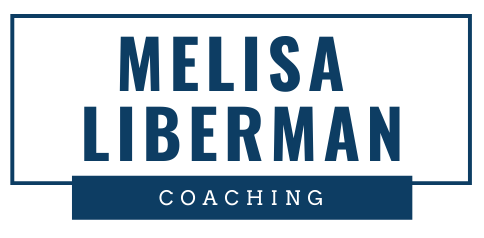ThinkLikeABoss: 6 Questions To Determine If You’re Undercharging as an Independent Consultant

Do you already know you’re undercharging as an independent consultant?
Most consultants do know they could be undercharging but aren’t sure how to pinpoint the exact ways and amounts they’re undercharging.
In today’s post, I share the six questions you can ask to figure out if you’re undercharging as an independent consultant.
With this knowledge, you’ll be able to know where you have opportunities to increase your consulting rates and pricing structures.
And ultimately, you’ll be able to make more money and more impact doing what you love to do.

Question #1 – What is the market telling you?
First, ask yourself: “what is the market telling me?”
Here are two indicators that the market is telling you your consulting rates are low:
- You have more demand than supply. Do you have more consulting work than you can handle? And, are you in a situation where you defer business development because you couldn’t take on more work anyway? If this is the case, you have more demand than you have supply. Instead of ignoring or deferring the demand, you can take this as a strong indicator that your pricing may be low and you have opportunity to increase it.
- New clients don’t push back on your consulting rates. Do new clients agree to your pricing without any negotiation or discussion? This could be a sign that you’re undercharging and your potential client was willing to pay more.
Question #2. Are you considering ROI when you build up your consulting pricing?

Many consultants base their rates and pricing structures by calculating an hourly or daily rate that would be the equivalent of what they’d be making (or did make) in corporate. Then, they add in the overhead costs of running a business to create their rate card.
Is this how you’ve calculated your rates too?
You could be leaving money on the table.
Ask yourself:
- What is the client’s ultimate return on investment for the project I’ll be doing?
- How can I calculate the quantitative and qualitative results they’ll experience?
- What is the lifetime value of the work I’ll be doing for them?
If you don’t know the answers to these questions, include them in your sales process so that you do uncover the specific value you’ll bring to the table.
And, then include these factors as you price out the consulting proposal for your clients.
Question #3: When was the last time you changed your consulting rates?
When most consultants look at their business data, they see that they haven’t raised their rates in the last year. For some consultants, the answer is several years. And for some consultants, I’ve found they’ve never raised their rates.
For you, the questions are:
- When is the last time I raised my consulting fee structure or consulting rates?
- Do I raise my rates after each project?
If you don’t have a business process to adjust your pricing after every engagement, this can be an indicator that you’re undercharging.
Question #4: Have you researched your own business to identify opportunities to increase your consulting fees?

It can be challenging to find publicly available consulting rates to benchmark your own consulting rates against.
And, oftentimes publicly available consulting rates are on the low end.
In addition to any market research you perform, you can research your own business to find areas where you’ve been undercharging and identify opportunities to increase your consulting fees.
Here are the steps:
- Review past engagements
- Quantify the financial and other benefits the clients got as a result of your consulting expertise.
- Now that you’re armed with this data, you can use it as inputs to raise your consulting fees and to make them more aligned to the results (qualitative and quantitative) you deliver.
Question #5: How do you think of yourself when you’re building up the pricing proposal?
This question is incredibly important to ask and answer for yourself. I find that almost every consultant overlooks it.
But, when you ask yourself what you’re thinking, it can be incredibly insightful and the internal dialogue that is leading you to undercharge.
For example, if your answer is something like “when we boil it down, I’m just a ________________”, there is a strong possibility you’re undercharging.
This is because you’re not giving yourself credit for your own expertise and experience.
You diminish the value you bring for your clients.
And, as a result, you price yourself and your work accordingly.
The way you see and think about yourself impacts everything from the level of questions you ask during the due diligence phase to the rates upon which you calculate your project proposals.
Question #6: Where are you avoiding or talking yourself out of charging for work that you’re doing?

Not charging for work is a common way that independent consultants undercharge.
There are many scenarios.
Do you relate to any of these?
- You think managing the scope change is too much of a hassle, so you absorb the work without adjusting your fees
- You feel like you made a mistake so you decide to eat the costs
- You worry that the timing isn’t right so you don’t bring up rate changes
- You procrastinate on invoicing, then think too much time has gone by, and decide not to invoice the client
- And on and on
Which of these sound familiar for you?
Now, there can be a time and place for giving clients a concession of some sort. But, I find in working with independent consultants that they end up making compromises without getting any goodwill in return. They just eat the hours worked because they feel they did something wrong, and as a result, end up undercharging in this way.
In Summary:
To uncover if you’re undercharging as an independent consultant, ask yourself these six questions:
- What is the market telling me?
- Did I take the return-on-investment into account when I build up my consulting pricing?
- Do I regularly raise my consulting fees?
- Have I researched my own business for data on the results I deliver?
- How do I see myself as I’m building up the consulting project pricing?
- Where am I not invoicing clients for work that I’m doing? (and, if when I do decide to give the client a concession, am I getting goodwill from it?)
Don’t Miss Melisa’s Podcast on this Topic
About Melisa Liberman Coaching:
Melisa is a business growth coach who focuses on helping independent consultants double their revenue without sacrificing their personal lives. Melisa Liberman is the host of the Grow Your Independent Consulting Business podcast and creator of the IC Bootcamp where she helps her clients transform you from a contractor-consultant into a consulting business owner so you make more money, make more impact, and have more flexibility and freedom for yourself.
You can find her in the MBO app store.

Melisa is a business growth coach who focuses on helping independent consultants double their revenue without sacrificing their personal lives. Melisa Liberman is the host of the Grow Your Independent Consulting Business podcast and creator of the IC Bootcamp where she helps her clients transform you from a contractor-consultant into a consulting business owner so you make more money, make more impact, and have more flexibility and freedom for yourself.
You can find her in the MBO app store.
Categories
Subscribe to the Insights blog to get weekly insights on the next way of working
Join our marketplace to search for consulting projects with top companies
Learn more about MBO
Learn how to start, run and grow your business with expert insights from MBO Partners
Learn how to find, manage and retain top-tier independent talent for your independent workforce.
MBO Partners publishes influential reports, cited by government and other major media outlets.
Research and tools designed to uncover insights and develop groundbreaking solutions.


